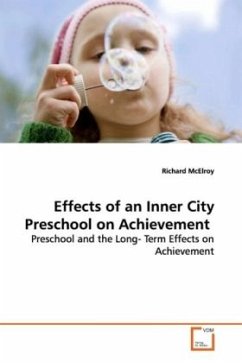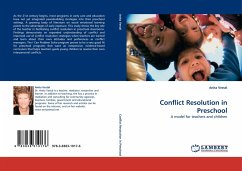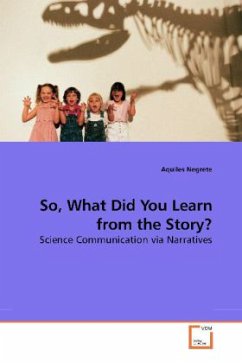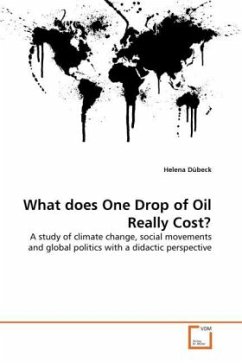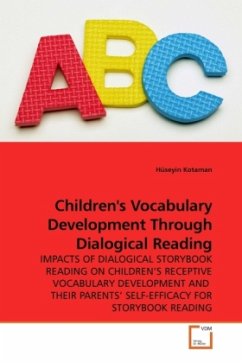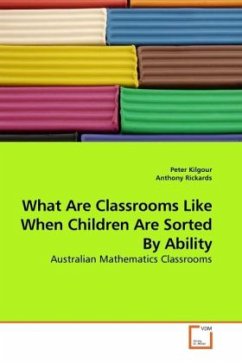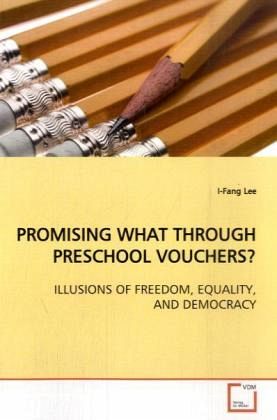
PROMISING WHAT THROUGH PRESCHOOL VOUCHERS?
ILLUSIONS OF FREEDOM, EQUALITY, AND DEMOCRACY
Versandkostenfrei!
Versandfertig in 6-10 Tagen
39,99 €
inkl. MwSt.

PAYBACK Punkte
20 °P sammeln!
Highlighting the deployment of preschool vouchers in Taiwan as an example, this book discusses how particular notions of freedom, equity, and democracy are mobilized to make contemporary educational reform discourses intelligible. While recognizing the need to reform in order to create a more inclusive educational system for the benefits of all children, the main purpose of this book is to raise our awareness of the ways in which contemporary reform policies and discourses prescribe certain solutions as the miracle answer to fix all problems. Therefore, without the problematization and reconce...
Highlighting the deployment of preschool vouchers in
Taiwan as an example, this book discusses how
particular notions of freedom, equity, and democracy
are mobilized to make contemporary educational
reform discourses intelligible. While recognizing
the need to reform in order to create a more
inclusive educational system for the benefits of all
children, the main purpose of this book is to raise
our awareness of the ways in which contemporary
reform policies and discourses prescribe certain
solutions as the miracle answer to fix all problems.
Therefore, without the problematization and
reconceptualization of reform discourses to
critically reflect on what we think we know,
contemporary educational reform discourses may
appear to promise freedom, equity, and democracy for
all, but producing illusions of inclusionary
reasoning (e.g., greater choice, freedom, or
democracy) while exclusions remain unexamined.
Taiwan as an example, this book discusses how
particular notions of freedom, equity, and democracy
are mobilized to make contemporary educational
reform discourses intelligible. While recognizing
the need to reform in order to create a more
inclusive educational system for the benefits of all
children, the main purpose of this book is to raise
our awareness of the ways in which contemporary
reform policies and discourses prescribe certain
solutions as the miracle answer to fix all problems.
Therefore, without the problematization and
reconceptualization of reform discourses to
critically reflect on what we think we know,
contemporary educational reform discourses may
appear to promise freedom, equity, and democracy for
all, but producing illusions of inclusionary
reasoning (e.g., greater choice, freedom, or
democracy) while exclusions remain unexamined.



